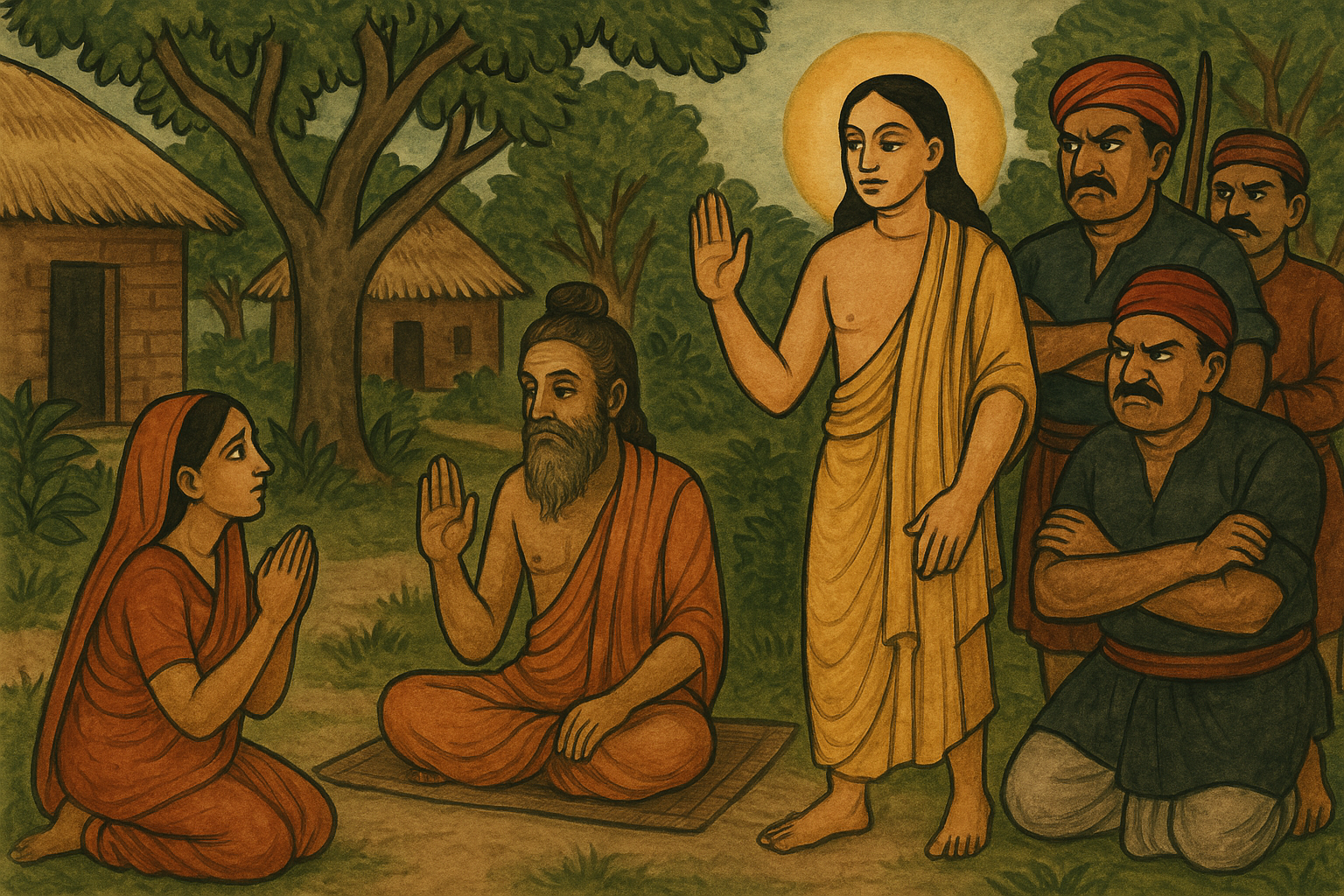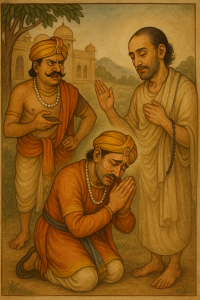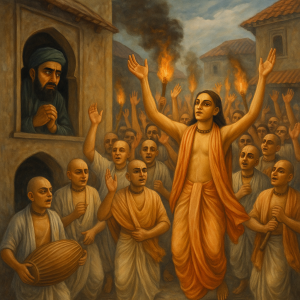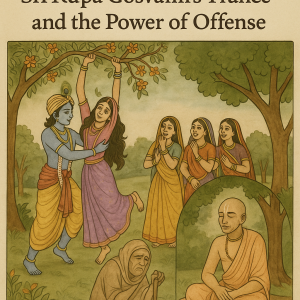Jealousy and a Malicious Plot
Rāmacandra Khān, a landlord in the Benapole area, was deeply envious of Haridāsa Ṭhākura, a respected Vaiṣṇava saint in the region. Driven by jealousy, Rāmacandra Khān schemed to defame Haridāsa’s pure character.
He sent a prostitute with the intent to pollute Haridāsa’s reputation and life.
The Prostitute’s Transformation
By the mercy of Haridāsa Ṭhākura, the prostitute underwent a miraculous transformation. She gave up her illicit profession and became a great Vaiṣṇavī, fully dedicated to devotional service.
Though she initially acted unknowingly as an instrument in Rāmacandra Khān’s scheme, she herself bore no envy toward Haridāsa and was liberated from her sinful life.
The Offense and Its Wider Impact
Despite the prostitute’s transformation, Rāmacandra Khān deliberately tried to malign Haridāsa out of sheer jealousy.
As a result of offending such an advanced devotee, Rāmacandra Khān also offended Lord Nityānanda Prabhu. When Lord Nityānanda came to visit, Rāmacandra Khān refused Him lodging in his courtyard.
Later, Rāmacandra Khān, his entire family, and even his village were tormented by a meat-eating government official—divine retribution manifesting beyond the individual offender.
Spiritual Teachings
- Offending advanced devotees harms not only the offender but also those connected to him—family, associates, and community.
- Recognizing that one’s offenses affect many lives, one must behave responsibly, especially toward devotees.
- Respect and humility toward devotees protect both oneself and others from suffering.
Practical Application
- Cultivate respect for devotees regardless of personal feelings.
- Understand the communal impact of personal offenses.
- Serve and honor devotees to invite protection and grace for oneself and one’s community.



